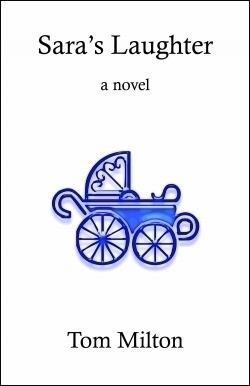Sara's Laughter
- 2011 INDIES Finalist
- Finalist, Religious (Adult Fiction)
On learning that, though elderly and barren, she’d finally have the child promised to her all those years ago, the Biblical matriarch, Sarah, laughs, surreptitiously. Whether read as bitter or joyous, nervous or skeptical, it’s in Sarah’s laughter that many have searched for guidance when life fails to deliver on cherished dreams. Taking this Old Testament lesson as inspiration, Sara’s Laughter explores the compromises contemporary Catholics make in an attempt to reconcile the restrictions of their faith with the technological advances that make reproductive dreams a possibility.
Although Sara, a good “Bronx Irish Catholic,” can’t escape the “voices” of her parents in her head, she resists the pressure to marry right after college and produce a grandson. Instead, she holds out for Mr. Right: Marcelo Solis, a Latino doctor who foregoes lucrative private practice to work at a clinic in the Bronx. However, after overcoming doubt and mistrust early in their relationship, and her father’s reservations about their mixed-race marriage, Sara and Marcelo find themselves facing a new challenge when Sara learns she’s all but infertile. Having already stepped outside the bounds of her faith as a single woman living in Manhattan (pre-marital sex, birth control), Sara must decide how far she’s willing to go “over the line” set by the doctrine of Humanae Vitae in order to have the family she so desperately wants. But when Sara’s troubled sister, Becky, calls, devastated, with news of her own unplanned pregnancy, Sara, misled by her own sense of entitlement (“Well, don’t you think we’d make better parents?”), accepts Becky’s promise to give her the child heedless of the repercussions: while Sara is “born with self-esteem,” Becky is not, and Sara knows Becky’s resentment won’t allow her to give her the one thing she wants.
While Milton’s tour of Catholic reproduction issues—birth control, surrogacy, in vitro fertilization, abortion—is laudably balanced, the treatment is too cursory and the ending too pat to be of much philosophical interest. Similarly, the doctrine of Humanae Vitae is prodded far too gently to appeal to skeptics or those interested in serious philosophical challenges to the doctrine. Regardless, Milton, author of five novels, including Infamy and The Admiral’s Daughter, is a talented storyteller who has real sympathy for his characters, and the result is an honest tale about relationships—the vicissitudes, the frustrations, the solace —and the enduring power of familial love.
Reviewed by
Devon Shepherd
Disclosure: This article is not an endorsement, but a review. The publisher of this book provided free copies of the book and paid a small fee to have their book reviewed by a professional reviewer. Foreword Reviews and Clarion Reviews make no guarantee that the publisher will receive a positive review. Foreword Magazine, Inc. is disclosing this in accordance with the Federal Trade Commission’s 16 CFR, Part 255.

